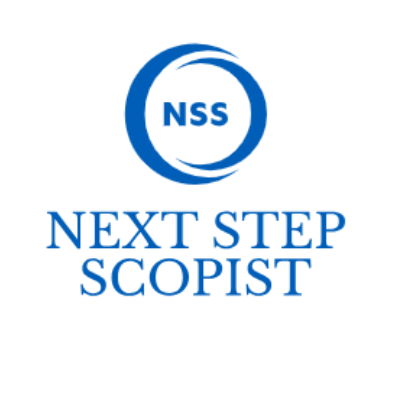July 27th, 2024 – Best Ways Court Reporters Have Stopped Cross-Talk

I came up with the idea to compile this article because I had seen so many different stories of court reporters finding funny and inventive ways of interrupting proceedings to eliminate cross-talk on the record. I started doing more research to compile examples when I came across an article, Silent No More: Court Reporters Speak Up For The Record on the BASF blog. It was anything but funny.
I knew how important it was to get an accurate transcript, but I had no idea that if a reporter failed to interrupt proceedings in the interest of protecting the record, they could lose their licenses. It never truly occurred to me that protecting the record is in fact protecting the public, as it is a CR’s responsibility to ensure the integrity of the record.
All of this led me to find as many ways as I could that CR’s have stood up for their record. No one wants to interrupt proceedings, and no one wants to upset the lawyers. However, when you can’t understand anyone because no one waits their turn to speak, you have to step in. CR’s are creative and hilarious people, they’ve found some attention-grabbing ways of making their point. I’ve separated these into two different but fitting categories: gestures, and sass.

Gestures
Although all three gestures I have mentioned in this category are some variation of putting hands in the air, I think they all convey different meanings.
Throw up hands.
First and foremost, a simple throwing of the hands. This is not simply lifting, or removing from the machine. No, this is emotional and clear. The act of THROWING hands in the air, and addressing your frustration. This is the funniest one to me. It’s a clear sign indicating, “I’m not getting any of this!”
I know when I’m doing transcripts and I have an audio file where the lawyers or the witnesses are getting heated and just can’t resist interrupting and cutting each other off, I’m yelling at my computer. How can I possibly record ANY of that, let alone all of it? I can barely understand what they’re saying. I have to listen to that section over and over again to get as much as I can for each speaker. If I had the option to throw up my hands and demand they respect each other and the record, I know I’d take it.
Hands off Machine
Much more subtle, but still effective. Raising rather than throwing your hands, and simply turning off the record. The exact quote I took from Best Practice Pointer No. 1: How to Interrupt Proceedings stated:

I like this one because it very clearly states, “None of this can and will go on the record. You either get it together so it can be recorded properly, or it doesn’t go on.” Not only is it a massive responsibility to provide an accurate record, but it’s just frustrating when there is no possibility of doing that job because adults have forgotten what children learned: don’t interrupt others and wait your turn.
One Hand Up
This is an obvious one that provides very little interruption. It is obvious that there is an issue and the reporter is making that clear. It is then in the lawyer’s court to acknowledge this gesture and behave accordingly. Another addition to this would be to add a, “Wait” in there to ensure that the witnesses and lawyers are waiting their turn. I have listened to some atrocious audio where the lawyers are fighting and simply will not let the other one get a word in. An audio file I once listened to had a witness who purposely got louder and more adamant when the lawyer tried to ask questions in the pauses in her speech.

Sass
These are my favorite. Especially when they are a little bit passive-aggressive. Court reporters take their job very seriously, but reminding a lawyer that they also have an obligation to getting accurate information on a transcript is stellar to listen to.
“Do you want 100% of the colloquy on the record?”
This is so saucy and I love it. Basically saying, “Would you like me to include all of this nonsense or would you like a clean record?” Lawyer’s are not stupid people, and they know when they’re making things more difficult for their court reporters. Witnesses are less inclined to care how the record comes out or what their responsibility is, but a lawyer will know when the information they’re trying to protect is being abused by cross-talk and colloquy.
“Remember: one at a time, please.”
That simple, “Remember” adds so much sass that I get giddy just thinking about it. Remember, we have talked about this, you know your responsibility, you understand what you’re doing, get it together. Yes. Please.

In Conclusion
I understand I take a bit too much joy from this. Far too many depositions and transcripts have come across my desk positively littered with cross-talk and colloquy. I can’t help but ask myself, “Are we not all of the same understanding, here? Do we have different interpretations of how these proceedings are meant to take place?” I am genuinely baffled daily by the amount of witnesses and lawyers who just speak like no one is listening or talking back. It is always a bright spot in my day to hear a court reporter’s voice say, “I’m not getting any of this when everyone keeps talking over each other.” Like, how do I send you a bouquet of flowers???
I hope you found this information helpful! If you liked this post or want to share your own experiences and tips, make sure to leave a comment down below. If you want to see more, check out the last post below or the previous posts on the blog. And if you’re interested in learning more scopist, proofreading, or transcription information, make sure to check back for a new post on the Next Step Scopist blog!
—-
Sources
https://www.sfbar.org/blog/silent-no-more-court-reporters-speak-up-for-the-record/
https://www.reddit.com/r/stenography/comments/1c0wckr/nicest_ways_to_stop_crosstalk/
https://www.courtreportersboard.ca.gov/formspubs/best_interrupt.pdf
—-
Last Post: Tips To Ensure A Quality Relationship With Any Court Reporter
Next Post: What Is A Scoofer?

Leave a Reply